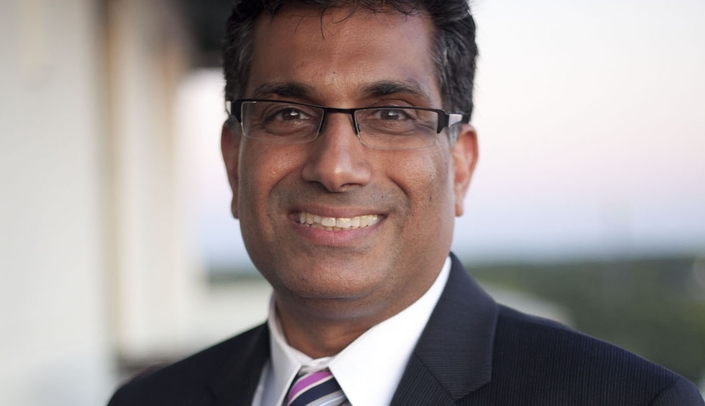“While it is hard to invest in something that is often invisible like public health is, we cannot do our work without research,” says Dr. Ali S Khan. Dr. Khan’s expertise includes a long stint as the director of the Office of Public Health Preparedness and Response of the Center for Disease Control (CDC).
Dr. Khan’s extensive resumé includes first-hand work battling epidemics, infectious diseases, and bioterrorism. His career includes work with malaria, SARS, Ebola, hantavirus, and many more major public health crises. He recounts his career and proposes various public health initiatives in his 2016 book The Next Pandemic: On the Front Lines Against Humankind’s Gravest Dangers.
Now, Dr. Khan has devoted his decades of experience to the Covid-19 outbreak. As the Dean of SPH in Omaha, Nebraska, he organizes quarantine and treatment measures to contain the outbreak.
Dr. Ali S Khan Led CDC Successes
“Sometimes my job, I must admit, can be very scary,” recounts Dr. Khan. “Many of the diseases we’re dealing with tend to kill you if you get infected. And there’s no treatment for them, and there’s usually no vaccine.”
Khan joined the CDC in 1991 as an Epidemic Intelligence Officer. Some of the earliest diseases he encountered include an outbreak of the newborn respiratory hantavirus in New Mexico, and the Ebola virus in the Philippines. He recalls especially fearing the latter due to the highly infectious nature of the disease.
“But as epidemiologists we know how to protect ourselves when we do this and the information we get helps us keep other people from being sick,” he says. During his time at the CDC, he helped design the President’s Malaria Initiative, proposed the BioPHusion program which was used during the H1N1 epidemic, and helped establish the CDC’s bioterrorism program.
After a 23 year-long career at the CDC, which culminated in the position of the director of the Office of Public Health Preparedness and Response and the title of Assistant Surgeon General, Dr. Khan took on the role of Dean of the University of Nebraska Medical Center College of Public Health.
A Career of People, Not Administration
Long before he joined the CDC or moved to Nebraska, Khan grew up in Brooklyn. Dr. Khan’s father was a self-made man. Gulab Deen Khan made his way from Kashmir to Bombay and then to Brooklyn, first working on a ship and then stoking coal in apartment buildings. Eventually, he made enough to buy his own building and send his son, born in New York, to Pakistan. He hoped Ali would learn more about his culture and heritage.
Khan laughs recalling the story of his time abroad to David Quammen of The New Yorker. Rather than immersing him in the culture of his heritage, he ended up at a British boarding school in Lahore. Khan jokes that it was “a better place to learn cricket than Urdu or Islam.”
Since 2014 Dr. Khan has lived in Omaha at the University of Nebraska. He wanted to return to the more people-facing aspect of public health, after working his way up the bureaucratic ladders of the CDC.
“The end of my career at C.D.C., I managed a $1.5-billion budget, so it was people and money,” explains Dr. Khan. “Now it’s almost all science…educating the next generation of public-health practitioners.” His career, other than education, now focuses on community healthcare initiatives.
“His vision is for the College [of Public Health of the University of Nebraska] to play an integral role in making Nebraska the healthiest and most equitable state in the Union as a national and global model for wellness,” describes Case Western University’s biography for Dr. Khan.
“We Can Eliminate” COVID, says Ali S Khan
“This is about a lack of imagination,” says Dr. Khan about the US’s treatment of the Covid-19 pandemic.
Dr. Khan cites multiple things that must be done to minimize risk as restrictions slowly relax. He recommends extensive testing, from 100,000 to 500,000 more people tested daily than now, isolation of the infected, contact tracing, implementing these protocols in high-risk settings, and protect healthcare workers.
Khan’s experience containing the West African Ebola outbreak in 2015 in conjunction with the World Health Organization and successes in battle against SARS and H1N1 inform his current opinions. “We need to work across disciplines and fields to better understand and protect ourselves from new and emerging infectious diseases,” he says.
He currently participates in town halls with Nebraska Governor Pete Ricketts, and has helped illustrate a community model of impact, which will inform local and state-level politicians on how to act further in Nebraska.
Read Dr. Khan’s book, The Next Pandemic, available on Amazon.



